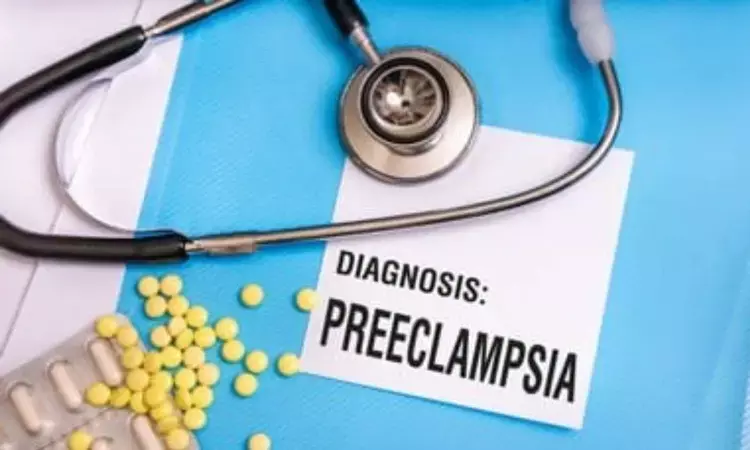- Home
- Medical news & Guidelines
- Anesthesiology
- Cardiology and CTVS
- Critical Care
- Dentistry
- Dermatology
- Diabetes and Endocrinology
- ENT
- Gastroenterology
- Medicine
- Nephrology
- Neurology
- Obstretics-Gynaecology
- Oncology
- Ophthalmology
- Orthopaedics
- Pediatrics-Neonatology
- Psychiatry
- Pulmonology
- Radiology
- Surgery
- Urology
- Laboratory Medicine
- Diet
- Nursing
- Paramedical
- Physiotherapy
- Health news
- Fact Check
- Bone Health Fact Check
- Brain Health Fact Check
- Cancer Related Fact Check
- Child Care Fact Check
- Dental and oral health fact check
- Diabetes and metabolic health fact check
- Diet and Nutrition Fact Check
- Eye and ENT Care Fact Check
- Fitness fact check
- Gut health fact check
- Heart health fact check
- Kidney health fact check
- Medical education fact check
- Men's health fact check
- Respiratory fact check
- Skin and hair care fact check
- Vaccine and Immunization fact check
- Women's health fact check
- AYUSH
- State News
- Andaman and Nicobar Islands
- Andhra Pradesh
- Arunachal Pradesh
- Assam
- Bihar
- Chandigarh
- Chattisgarh
- Dadra and Nagar Haveli
- Daman and Diu
- Delhi
- Goa
- Gujarat
- Haryana
- Himachal Pradesh
- Jammu & Kashmir
- Jharkhand
- Karnataka
- Kerala
- Ladakh
- Lakshadweep
- Madhya Pradesh
- Maharashtra
- Manipur
- Meghalaya
- Mizoram
- Nagaland
- Odisha
- Puducherry
- Punjab
- Rajasthan
- Sikkim
- Tamil Nadu
- Telangana
- Tripura
- Uttar Pradesh
- Uttrakhand
- West Bengal
- Medical Education
- Industry
Cardiac Connection: New study reveals association of Pre-eclampsia and Fetal Heart Defects

The pathophysiology of pre-eclampsia has traditionally been thought to result from placental dysfunction; however, a heart-related origin has been proposed recently. While a link between fetal congenital heart disease and pre-eclampsia has been established, a specific biological mechanism explaining this association remains undefined. Recent research paper explores the potential cardiac origin and pathophysiological mechanisms underlying the association between fetal congenital cardiovascular disease and pre-eclampsia. While the dominant theory has been that pre-eclampsia stems from placental dysfunction, a cardiac origin has been more recently proposed.
Biophysical and Biochemical Markers
The paper highlights various biophysical and biochemical markers of cardiac dysfunction that have been investigated as potential predictors of pre-eclampsia. Biophysical markers include echocardiography and Doppler indices, which have shown that women with pre-eclampsia demonstrate evidence of cardiac dysfunction, such as increased left ventricular wall mass and deteriorating diastolic indices. Biochemical markers include proteomic, metabolomic and genetic/transcriptomic markers.
Proteomic and Metabolomic Studies
Proteomic markers like NT-proBNP, troponins, and other proteins involved in inflammation and angiogenesis have been investigated. Metabolomic studies have found elevated levels of lipids, fatty acids, acylcarnitines, and amino acids like glutamate, which are associated with increased cardiac disease risk. Transcriptomic and epigenetic analysis has revealed shared pathways involving oxidative stress, inflammation, and immune responses between cardiovascular disease and pre-eclampsia. The paper also discusses the link between fetal congenital heart disease and maternal pre-eclampsia. Fetuses with structural heart defects like ventricular septal defects, atrioventricular septal defects, and coarctation of the aorta have a higher risk of developing pre-eclampsia. Fetal biomarkers like natriuretic peptides have been explored as predictors of fetal cardiac dysfunction and its impact on the mother.
Conclusion
In summary, this research highlights the growing evidence supporting a cardiac origin for pre-eclampsia, in contrast to the traditional placental dysfunction theory. The shared pathophysiological pathways between maternal/fetal cardiac disease and pre-eclampsia, involving inflammation, oxidative stress, and angiogenic imbalance, provide a strong rationale for further investigating the cardiac basis of this pregnancy-specific condition.
Key Points
1. The paper explores the potential cardiac origin and pathophysiological mechanisms underlying the association between fetal congenital cardiovascular disease and pre-eclampsia, in contrast to the traditional placental dysfunction theory.
2. The paper highlights various biophysical markers of cardiac dysfunction, such as echocardiography and Doppler indices, which have shown that women with pre-eclampsia demonstrate evidence of cardiac dysfunction, including increased left ventricular wall mass and deteriorating diastolic indices.
3. Proteomic markers like NT-proBNP, troponins, and other proteins involved in inflammation and angiogenesis have been investigated as potential predictors of pre-eclampsia. Metabolomic studies have found elevated levels of lipids, fatty acids, acylcarnitines, and amino acids like glutamate, which are associated with increased cardiac disease risk.
4. Transcriptomic and epigenetic analysis has revealed shared pathways involving oxidative stress, inflammation, and immune responses between cardiovascular disease and pre-eclampsia.
5. Fetuses with structural heart defects like ventricular septal defects, atrioventricular septal defects, and coarctation of the aorta have a higher risk of developing pre-eclampsia, and fetal biomarkers like natriuretic peptides have been explored as predictors of fetal cardiac dysfunction and its impact on the mother.
6. The growing evidence supports a cardiac origin for pre-eclampsia, in contrast to the traditional placental dysfunction theory, and the shared pathophysiological pathways between maternal/fetal cardiac disease and pre-eclampsia provide a strong rationale for further investigating the cardiac basis of this pregnancy-specific condition.
Reference -
Kelly M Reilly et al. (2024). Feto-Maternal Indicators Of Cardiac Dysfunction As A Justification For The Cardiac Origins For Pre-Eclampsia.. *International Journal Of Gynaecology And Obstetrics: The Official Organ Of The International Federation Of Gynaecology And Obstetrics*. https://doi.org/10.1002/ijgo.15770.
Dr Kamal Kant Kohli-MBBS, DTCD- a chest specialist with more than 30 years of practice and a flair for writing clinical articles, Dr Kamal Kant Kohli joined Medical Dialogues as a Chief Editor of Medical News. Besides writing articles, as an editor, he proofreads and verifies all the medical content published on Medical Dialogues including those coming from journals, studies,medical conferences,guidelines etc. Email: drkohli@medicaldialogues.in. Contact no. 011-43720751


